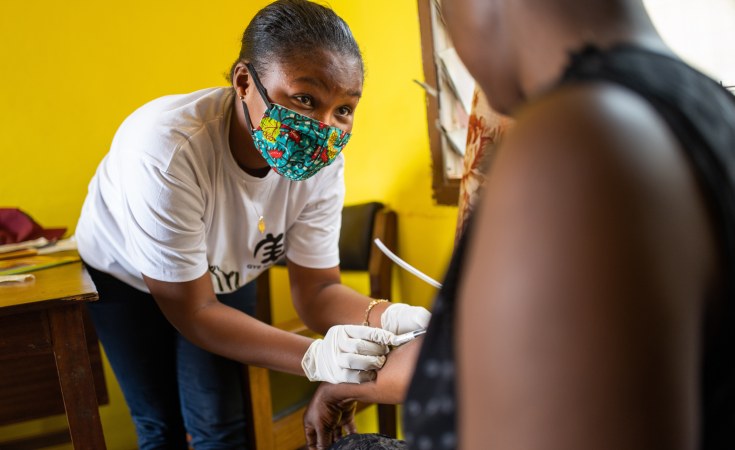Cape Town — The World Health Organisation (WHO) recently commended South Africa for its declining Covid-19 infection rate, approving the implementation of public health measures to curb the spread of the virus. This, according to WHO Regional Director for Africa Dr Matshidiso Moeti, is indicative of a larger trend across the continent. Moeti spoke during an online media briefing to examine the status of the Covid-19 outbreak across the continent.
"Quite early in in the evolution of the pandemic on the continent, government quickly implemented restrictions on movement and gatherings; so-called 'lockdowns' and this, we think, created a window of opportunity to keep the case numbers low and to strengthen public health capacities," Moeti said. Moeti added that after the implementation of lockdowns, which were introduced at great cost to many economies, countries have started to reopen following a decline in Covid-19 cases.
"Some countries like South Africa, Algeria, Mauritania, and Ghana experienced an increase in Covid-19 cases and now we are seeing a decrease in most countries in the region," Moeti said. Moeti also said that some studies are under way to determine whether communities have antibodies and that consideration had to be made for the possibility of large numbers of people who may be infected but which authorities may not be aware of.
Moeti said that 80% of Covid-19 cases in Africa are asymptomatic. "These are higher than the symptomatic rates that have been quoted around the world," she added. According to Moeti, the fact that health facilities across the continent have not been overwhelmed by large numbers of people with infections is also indicative of most infections on the continent being asymptomatic.
"We're also not seeing evidence of excess mortality due to Covid-19 ... Although we acknowledge the death rate registration in most of our countries is a problem, we have seen in previous outbreaks, like the West Africa Ebola outbreak, that when communities start to see many numbers of people dying of a particular pattern of illness, they report this at some point or other in the health system," Moeti said.
Some of the most-affected countries, including Algeria, Cameroon, Cote d'Ivoire, Ethiopia, Ghana, Kenya, Madagascar, Nigeria, Senegal and South Africa, have all seen infections drop every week over the past two months. Deaths attributed to Covid-19 have also remained low in the region.
"The downward trend that we have seen in Africa over the past two months is undoubtedly a positive development and speaks to the robust and decisive public health measures taken by governments across the region," said Moeti. "But we must not become complacent. Other regions of the world have experienced similar trends only to find that as social and public health measures are relaxed, cases start ramping up again."
"Africa has not witnessed an exponential spread of Covid-19 as many initially feared," said Dr Moeti. "But the slower spread of infection in the region means we expect the pandemic to continue to smoulder for some time, with occasional flare-ups."
Moeti concluded by saying that the easing of lockdown restrictions demands two things: that public health capacities should be up to speed across countries and that the people of Africa should understand what they need to do limit the transmission of the virus by avoiding mass gatherings, keeping physical distance wearing personal protective equipment (PPEs) and by washing their hands.
"Very importantly, we need to shield older people and those with underlying conditions from being infected," she said.


